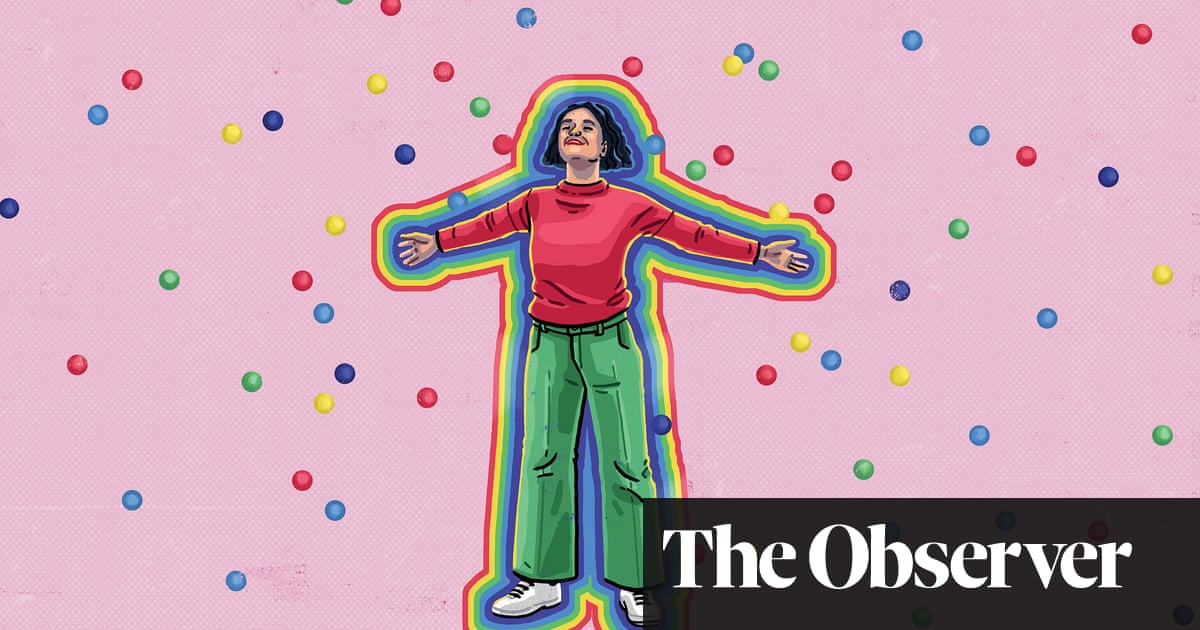
he last week has been my most human for four months. I have been to a hairdresser; eaten out in restaurants and at friends’ homes; played tennis and golf; stood in the street talking with work colleagues; and, what seemed most novel of all, shared a beer in a pub. It all feels rather heady.
But none of it was normal. Everybody wore masks at the hairdresser; the restaurants were deserted; windows and doors were wide open at my friends; we had the inside of the pub to ourselves. Meanwhile, Zooming continues unabated; public transport still seems a risk of last resort; and, in the supermarket on Friday, I wore a mask like everyone else – and thought this right and unremarkable. Go into our city centres and they are eerily quiet. What is human and how we interact are being redefined.
For good reason. While the Covid infection rate has been declining since mid-May and is now running at one in every 2,000, the rate of decline has levelled off. Yes, try to escape the privations of intense lockdown, but only within limits, and be keenly aware that Covid could come back.
The new normal is beginning to be felt. Companies are wary about hiring; unfilled vacancies have plunged to the lowest for decades. Hopes that the bounce in consumer spending seen in June would follow through and deliver a sharp V-shaped recovery are evaporating. The Bank of England’s real-time data shows that spending on consumer durables, clothing and vehicles has been falling away since the beginning of the month.
In the housing market, less densely populated suburbs with larger houses and flats that allow home working along with generous gardens have become newly popular. We are wary, risk-averse and building different lifestyles
The rich are increasingly apart. The art market is surging. Sotheby’s and Christie’s have launched online auctions that have delivered record prices. In New York, Michael Jordan’s old Nike Air Jordan 1s fetched an extraordinary $560,000. There are long waiting lists for yachts and top-of-the-range bicycles. Awareness of the transformed prospects for tech companies has seen their share prices soaring. Wealth begets more wealth as never before.
The UK economy and society have not in modern times confronted such epic challenges simultaneously – managing the fallout of a pandemic and adjusting to the transformative economic impact of accelerated digitisation, while being on the verge of slicing through the beneficial trading and financial relationships with the EU with nothing to take their place.
The irrationality of all the institutional and intellectual failures of the last 40 years – excessive administrative and political centralisation, absurd denigration of the public realm and over-celebration of the private, the indulgence of inequality and growth of rentier capitalism, the crazed hatred of collaboration with our own continent, the inability of the political centre to hold – has suddenly crystallised. Britain confronts its challenges from the weakest position possible.
This intensifies our collective caution. We celebrate the NHS but know our health workers have suffered one of the worst death rates in Europe. Public Health England, reeling from cumulative cuts, has not been as agile as it could have been. How about a weekly test available to everyone to assure ourselves who is healthy and who is not and to give the authorities data on which to act? This kind of testing regime, let alone tracking that might give everyone more confidence to work, play, shop and socialise before the introduction of an effective mass vaccine, is a pipe dream. There isn’t the local administrative capacity, let alone productive capacity, to do it.
Suddenly, it is obvious to all that a resilient, decentralised public health system, supported by a vibrant network of suppliers, is the cornerstone of a functioning economy and society. Witness Germany.
A second-rate cabinet of libertarians, free marketeers and Johnsonian loyalists is being compelled to amend its lifelong wrong beliefs. Britain is about to launch one of the world’s most restrictive marketing regimes for junk food, to curb obesity. The NHS is being properly funded. Plans are advanced to create an infrastructure bank. The state is to invest in vaccine manufacturing plants – and has spent £400m to buy a strategic satellite company. The £2bn kickstart programme to pay a minimum wage for six months to 16-24-year-olds is about to go live. Reality is forcing policy to point in a new, correct direction.
But on Brexit the libertarian Johnson holds out. Insiders tell me, confirmed by lead EU trade negotiator, Michel Barnier, that Britain is seeking no more than a 19th-century type of zero-tariff trade deal. This is a complete exit with nothing on common standards so vital in the 21st century for services and hi-tech manufacturing. Zero tariffs count for nothing if your exportable goods or services do not meet the standards of the host country. It is, in effect, a no-deal Brexit, a slow death sentence for the car, chemical, pharmaceuticals, aviation, engine, food and drink industries and no less serious for services and the City.
So yes, the Johnson government has embraced necessary public activism, but the measures lack coherence, consistency and, above all, scale. Anything gained on satellites or infrastructure will be overwhelmed by what will be lost by the interaction of a de facto no-deal Brexit with the structural changes forced on us by Covid and the accelerating pace of digitalisation. Unemployment is set to rocket to between 4 and 6m in 2021, while inequalities must intensify.
In response, Britain has to think and act bigger than it ever has outside wartime and get as close to the EU as possible. We need not only giants, but giants with imagination. Instead we have small minds.
• Will Hutton is an Observer columnist












